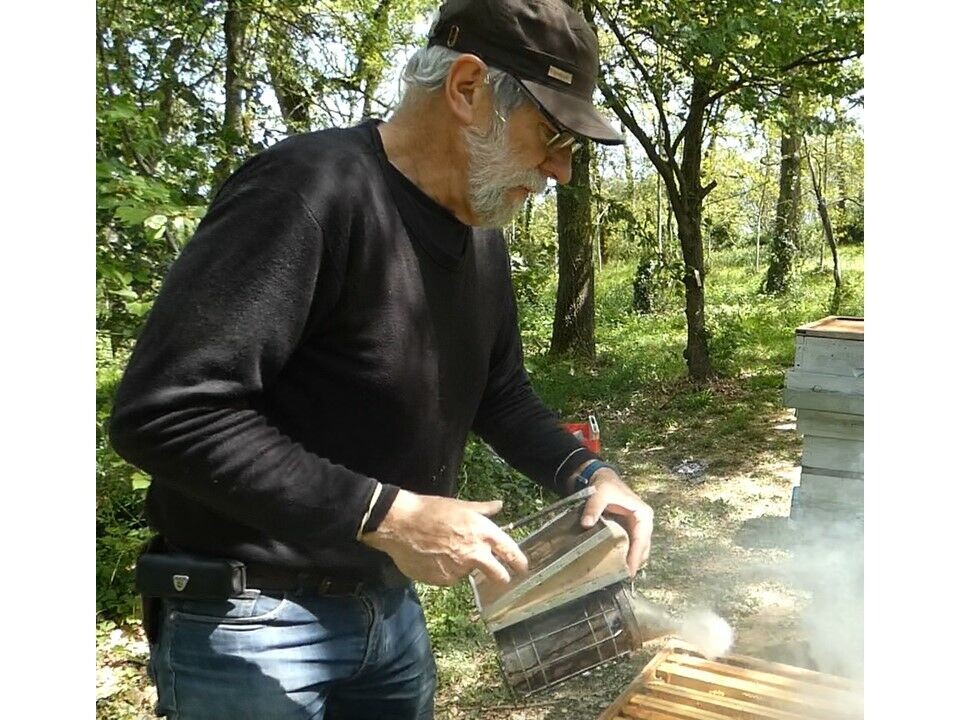-
From Oregon to Brittany: primrose nursery in France celebrates 90th anniversary
Barnhaven Primroses traces its history back to 1930s America
-
Avalanche deaths in France: Why so many this year?
There have already been 12 deaths since Christmas
-
Private radar vehicles catch 4,000 drivers speeding in south west France in just four months
More than one-fifth of infractions were recorded on Toulouse ring road
French beekeepers experiment with indoor hives in bid to save bees
Bee colonies are heavily impacted by parasites and are struggling to survive warmer winters. A retired scientist and former professional beekeeper is trying keeping them inside

A retired scientist is experimenting to see if keeping beehives in garages over winter can help to save them from collapse.
With French honey production at historically low levels, around 120 beekeepers contacted Xavier Dumont when he appealed for volunteers.
Only 30 could do the necessary controls and measurements to ensure the experiment met scientific standards.
“It is just enough for the experiment to have scientific validity, but it would have been nice to have a few more,” Mr Dumont told The Connexion.
Mr Dumont, a professional beekeeper in his youth, later became a researcher for pharmaceutical company Sanofi. As retirement approached, he started beekeeping again around 10 years ago.
“Conditions have changed considerably. When I was doing it professionally in the mid-1970s to the mid-1980s, the winters were colder than they are now and we did not have to worry so much about the varroa parasite, which has since become a big killer of hives.”
Read more: Nests of new bee-eating oriental hornets found in Marseille destroyed
During one recent winter, Mr Dumont, who lives near Toulouse, saw a hive die overnight in February when temperatures reached -10C, a temperature bees can usually withstand.
“My conclusion was that the bees were weak because they were going out so often and, with the queen continuing to lay eggs, the varroa parasite count was high,” he said.
Recalling that Canadian beekeepers bring hives under cover for five months to protect them from the cold, Mr Dumont tried keeping four hives in a cold, dark garage for 70 days.
“Instead of bringing them in to protect them from the cold, I took them in to protect them from warm winters, and it seemed to work.
“All four hives survived the winter and came out strong for the spring and summer, and had low varroa infestation rates,” he said. The hives were taken out every three weeks on fine days to allow the bees to carry out their bodily functions.
Read more: ‘No stings yet!’: Feedback from beekeeping beginners in France
“The garage has never been used for our car, so there is no petrol smell or anything else which might poison the bees,” he said.
Mr Dumont intends to write up the results of the experiment and publish them in a beekeeping journal.
“My instinct is that this could help keep many hives alive, both commercial and hobby ones.
“It takes a bit of organising and you have to have somewhere like a garage or cellar to keep the bees and be able to take them out every three weeks or so, but the effort in terms of stronger hives and more honey will be worth it – I hope.”
The National Union of French Beekeeping, Unaf, said that last year’s honey harvest was “disastrous”, blaming low production on cold, wet and windy conditions, with many French regions suffering from frost.
As well as climate change, bee colonies have also been heavily impacted in recent years by the arrival of predatory species such as Asian hornets, and by the use of pesticides.
In 1995, France produced around 32,000 tonnes of honey. In 2019, the harvest was less than 10,000 tonnes.
Related stories:
How to harvest your own sweet honey in France
Is there space in your French garden for hives in return for honey?
France’s beekeepers’ fears for 2021 honey harvest after record 2020
























